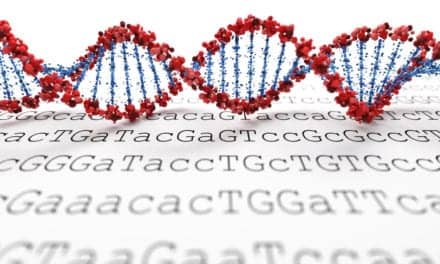Quest Diagnostics has announced a new molecular test panel designed to help physicians determine if a thyroid gland is cancerous and requires surgical removal. The test is believed to be the most comprehensive panel clinically available to identify mutations associated with four gene markers indicated by the American Thyroid Association for the clinical management of indeterminate thyroid biopsies.
“The removal of a healthy thyroid gland is an unfortunate outcome for many patients, due to limitations of current test methods,” said Richard E. Reitz, MD, medical director and chair, endocrine division, Quest Diagnostics Nichols Institute, the advanced diagnostic testing, research and development center of Quest Diagnostics. “We believe our molecular panel will enhance the reliability of thyroid biopsy testing, helping to prevent the unnecessary removal of healthy thyroids for many patients.”
The Quest Diagnostics Thyroid Cancer Mutation Panel aids in detecting cancer in thyroid biopsies, which are found to be indeterminate for cancer by current cytology test methods. Approximately 15% to 20% of these biopsies, which are collected by fine needle aspiration (FNA), produce indeterminate results. An unclear result may increase the risk that a physician, in an abundance of caution, will biopsy additional tissue using a larger needle or surgically remove part or all of a thyroid suspected of having cancer that is later diagnosed as healthy. About 300,000 thyroid FNA biopsy procedures are performed annually in the US.
The new panel identifies mutations of the molecular markers BRAF V600E, RAS, RET/PTC, and PAX8/PPAR gamma, which are associated with papillary and follicular thyroid cancer, two common forms of the disease. Practice guidelines from the American Thyroid Association recommend that physicians consider these markers as aids in clinical management of patients with indeterminate biopsy test results. The test complements the company’s FNA cytology testing services for thyroid biopsies, and may be used on FNA biopsies ruled indeterminate by these testing services.
Results of a study by scientists at Quest Diagnostics found that 90 of 149 FNA specimens, or about 60%, had mutations of one or more of the four markers tested by the new panel. The presence of the four markers was generally mutually exclusive, suggesting potential value in a hierarchical screening strategy for samples with limited tissue. According to the American Cancer Society, about two tests in every 10 may need to be repeated because the sample does not contain enough cells for testing.
Source: Quest Diagnostics



